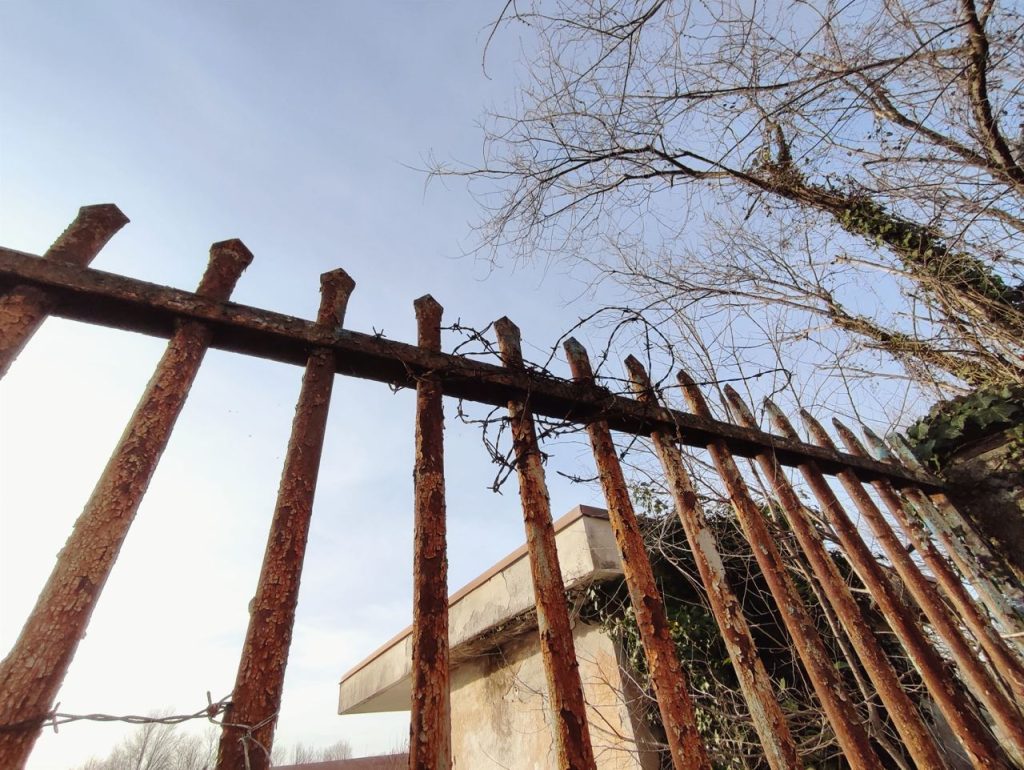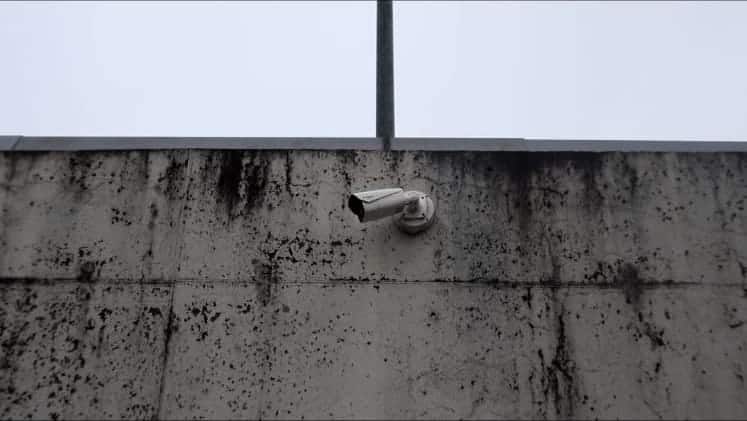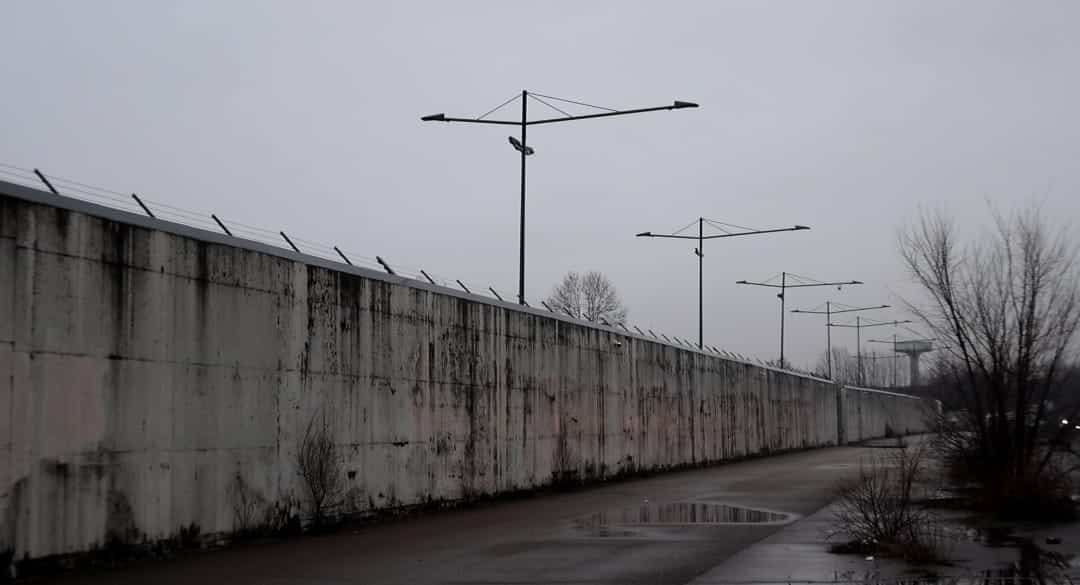By Alexia Malaj and Gaia Giuliani as part of No Name Kitchen. Photos by Stakoza
On 6 November 2023 the Italian Prime Minister, Giorgia Meloni, and the Albanian Prime Minister, Edi Rama, signed a Memorandum of Understanding between Italy and Albania on the management of the arrival of people-on-the-move. According to the Protocol, people rescued at sea by Italian ships would be taken to two facilities on Albanian territory managed by Italy at its own expense and under its jurisdiction.
On 21 November 2023, the Minister of Foreign Affairs, Antonio Tajani, then announced that the agreement will have to pass the approval of Parliament with a ratification bill.
The Protocol sets out in its 14 articles the following main points:
- the construction of two centers, operating from spring 2024, with a maximum capacity of 3000 people at a time. The centers are planned to examine asylum applications for people rescued in the Mediterranean by ships of the Italian authorities, for a total of 36 thousand applications per year;
- one of the centers will be built in Shëngjin (northern Albania) where the procedures of disembarkation, identification, and screening of people landed will take place and the other one will be built in Gjadër, in a more internal area (where the center is going to be a CPR);
- all costs related to the maintenance of the facilities and the transfer of people will be borne by Italy. For the first year, Italy will have to pay EUR 16.5 million.
The Protocol shall be for a period of five years, automatically renewed unless one of the Parties communicates its disagreement within six months of its expiry.
On 22 January, the Chamber of Deputies debated the ratification of the agreement,which was approved two days after, on the 24th of January 2024. The majority was united in approving the text and rejecting all the amendments proposed by the oppositions, such as the one that provided for the exclusion of «fragile» and «vulnerable» persons from transfer to Albania or the proposal to guarantee access to lawyers, auxiliaries, international organizations and EU agencies.
Externalization of borders
On January 29, 2024, the Albanian Constitutional Court granted approval and ratified the agreement. With this ratification, the protocol has attained legal status, prompting both countries to move forward with plans to operationalize the centers by mid-March.
In this regard, the International Organization for Migration (IOM) has commenced posting job openings since the beginning of January, with plans to commence employment for personnel who will be stationed at the Shëngjin center starting from March 15th 2024. However, despite on this day the European Court of Justice decided to suspend the protocol for further scrutiny, Giorgia Meloni and Edi Rama didn’t stop.
On the 21st March 2024, the prefecture of Rome has published the tender for the management of the centers in Albania, revealing further details stipulated by the agreement and confirming that the centers will be operational from 20 May 2024.
This agreement represents a case of externalization of borders. For over two decades, governments in wealthier nations, particularly in the West, have implemented strategies focused on outsourcing border management and asylum procedures beyond their borders. These strategies are designed to discourage illegal border crossings, especially by sea, by confining individuals to the territories of other nations. Outsourcing policies typically involve closer collaboration with foreign border control authorities and the creation of specialized centers in those countries to handle asylum requests.
Italy’s history includes similar actions, such as the 2017 Italy-Libya agreement, where Italy pledged economic aid and technical support to combat illegal migration. In early 2023, Tunisia became Italy’s main departure point, prompting intensified diplomatic efforts. This led to a memorandum of understanding between the EU and Tunisia, aiming to reduce migration in exchange for support. Despite human rights concerns, the agreement lacked mechanisms to ensure rights were respected. Tunisian authorities continued forcing POMs to the Libyan border, leaving many stranded without aid. Despite media reports, EU leaders didn’t publicly condemn these actions.
Now it is Albania
And now it’s Albania’s turn. However there are some differences and further concerns in this agreement.
Unlike the agreements with Libya and Tunisia, which focused on border control to prevent POMs from reaching Italian territory, the agreement with Albania provides for the extraterritorial process of asylum claims.
Secondly, the Italy-Albania agreement does not outsource the responsibility for processing asylum applications to Albania, everything will take place under Italian jurisdiction.
Finally, according to article 3.2 of the agreement, “the areas (in Albania) are granted free of charge”, this means that Albania would not receive any financial aid from Italy.
According to Albanian Prime Minister Edi Rama, Albania is willing to provide its territories free of charge for the construction of Italian reception centers, stating that the Albanians would be indebted to Italy, “if we can help, we will” he states.
However, it’s evident that Albania does not have any actual debt to Italy, and this approach is a strategic move to facilitate Albania’s access to the EU. This plan resonates with the sentiments of Giorgia Meloni, who views the agreement as having significant European implications. Meloni highlights “I consider this agreement to be an agreement with a great European scope, an agreement with which Albania confirms itself not only as a nation historically friendly to Italy, but also as a friendly nation of Europe and the European Union, because although Albania is not yet part of the EU, Tirana is in fact behaving as if it already was”.
Neocolonialism permise

Giorgia Meloni speaks of a “historical friendship” between Albania and Italy, overlooking the less-than-friendly history when Italy invaded Albania during the fascist regime. Similar to Libya, Albania also endured colonial occupation by Italy. It’s interesting to note how Italy is leveraging former colonies to form agreements aimed at curbing illegal migration.
It is therefore clear that this agreement hides, not very well, the Italian colonial past.
Considering Albania as the ideal destination to build detention centers for POMs heading to Italy reflects a mentality similar to considering it an extension of Italy, an underdeveloped region, where Italians exercise uncontrolled influence. In fact, Article 7.2 of the agreement states that:
“The entry and stay in Albania of Italian personnel for the purposes set out in this Protocol is exempt from visa, residence permit and other formalities required by Albanian legislation on immigration Italian personnel who remain in Albanian territory for more than 90 days are issued, free of charge and upon simple request, an identification document (“unique permit”).”
Furthermore, as can be read in article 6.2 of the agreement, the Albanian authorities cannot access the inside of the structures without the consent of the person in charge of the structure, but can only access it exceptionally, i.e. in cases of fire or other imminent dangers.
Then there are other privileges enjoyed by Italian personnel, such as immunity from any form of detention in Albania, highlighted in article 7.6.
Italian neo-colonialist attitude in Albania is also underlined by the surge in mass tourism by Italians to Albania in recent years, as well as the relocation of Italian entrepreneurs’ businesses to Tirana due to lower labor costs and less stringent workers’ rights.
In short, it seems that Italians are allowed everything in Albania.
Violation of human rights
1. Principle of non-refoulement
This agreement not only operates on a neo-colonial premise but also contravenes numerous principles of international law concerning human rights. Amnesty International has deemed the deal “illegal and unworkable,” citing violations of the principle of non-refoulement outlined in Article 33 of the Refugee Convention. This principle prohibits the forcible return, or “refoulement,” of refugees, asylum seekers, or individuals in need of international protection to a country where they would face persecution, torture, or other forms of inhumane treatment, endangering their life or freedom.
Individuals rescued at sea by Italian authorities, including those seeking refuge in Europe, fall under Italian jurisdiction and must undergo examination of their asylum requests and individual circumstances before being transferred to another country. This principle stands as a straightforward matter. Although the agreement provides that the centers will be under Italian jurisdiction, there are still doubts about the enforcement of this law.
2. Risk of torture and inhuman or degrading treatment
However, considering the human rights situation in Albania it isn’t imperative to assert the abundance of human rights violations within Italian territory and within the ideological foundations of this agreement.
Under international law, Italy and other states are obligated to coordinate and collaborate to ensure that individuals rescued at sea can disembark in a place of safety at the earliest possible opportunity following the rescue. This entails making every effort to minimize the duration survivors remain aboard the assisting vessel and expediting arrangements for their disembarkation.
It is not clear how the POMs will be transferred to Albania, but if they were to change route and make them disembark in the Albanian port of Shëngjin, which is situated almost 1000 km away from the areas where rescues are commonly conducted – i.e. Lampedusa or Malta – it would require approximately two or three extra days at sea to transport shipwreck survivors there.
Such a scenario would exacerbate the anguish of the survivors, who are already traumatized by their harrowing journey, the deprivation of sustenance, and the loss of friends and family. It would effectively constitute mistreatment of these individuals. The agreement might disrupt the search and rescue system, pressuring the Italian Maritime Rescue Coordination Centre to prioritize certain groups. This could delay assistance for those in distress, potentially leading to more fatalities.
3. Violation of fundamental rights of vulnerable people
While Giorgia Meloni nd Edi Rama have frequently stated to the press that the agreement will solely affect men and exempt more vulnerable groups such as children, survivors of trafficking and torture, and pregnant women, there is no provision within the agreement outlining the process for identifying these individuals. Given that all individuals embarking on such journeys are inherently vulnerable, this agreement jeopardizes the entire system for identifying and safeguarding children, pregnant women, survivors of trafficking and torture, and other vulnerable groups requiring specialized assistance.
4. Violation of the right to liberty
The agreement provides that individuals accommodated in the two centers in Shëngjin and Gjadër cannot leave those centers during their stay in Albania. In Italy, while you are waiting for answers regarding your asylum request and you are in a reception center, you can go outside the center for a walk during the day. This makes both centers places of detention where the right to freedom is violated. And if you leave the camp what will happen?
Is Albania ready?
“Such an agreement has found us unprepared” states Kristina Millona, an Albanian activist and journalist from Tirana, “there is lack of lobbying in Albania for a fair asylum system, and no field work is done to support people-on-the-move”, she concludes.
For many people on the move, Albania is one of the stops on the Balkan Route.
From many testimonies collected in Trieste, many people-on-the-move had to deal with albanian authorities, they explained to me that it was easy crossing that border “you just give money to Albanian police and they will take you anywhere, they drop you in North-Macedonia, Kosovo or Serbia” emerges from the testimonies of some asylum seekers in Trieste.
Albania is the most corrupt country in Europe, both with Serbia and Bosnia and Herzegovina, according to Transparency International’s Corruption Perceptions Index. Corruption has been pervasive in several sectors in Albania, including politics, law enforcement and public services. Additionally, the country is known to host established trafficking networks. The 2023 Trafficking in Persons Report by the US Department of State paints a grim picture: Albania fails to meet the minimum standard for eliminating trafficking, perpetuating a tragic cycle of exploitation.
Due to such circumstances, Albania has long been characterized by emigration. Each passing year sees a decline in the Albanian population, leading to the emergence of ghost towns like Kukës. Here, young Albanians resort to desperate measures, hiding in trucks to illegally cross European borders. Some eventually find themselves in Calais, boarding small boats destined for the UK, only to end up confined in detention centers upon arrival, subjected to similar policies anticipated at the Shëngjin and Gjadër centers. As a country that has never been a destination for POMs, Albania remains largely unfamiliar to European asylum systems and has never established detention centers for POMs. The only familiarity is with those Albanians who lived and died there in the CPR. Now, these centers that kill will be erected in their homeland, for the first time.
It’s crucial to highlight that Albanian organized crime plays a significant role in the smuggling operations along the Balkan route. Reports from BIRN, along with numerous testimonies from asylum seekers we’ve spoken with in Trieste, underscore how Albanian gangs supply weapons to smuggling networks throughout the Balkans, notably in Serbia. They facilitate the transportation of weapons from Kosovo to smuggling groups originating from Afghanistan, Morocco, and Syria. Given these circumstances, individuals leaving the centers are highly likely to encounter trafficking activities, making the agreement violate the principle of non-refoulement.
No to CPR

The problematic nature of the agreement lies not only in the neo-colonialist bases and in the violation of the rights listed above, it lies in extending beyond the Italian borders, into a non-EU country, a shameful policy that constantly denigrates and violates the human rights of POMs, asylum seekers and refugees.
On January 10, 2024, our team from No Name Kitchen Trieste visited the Reception Center in Gradisca. What we found were tall walls and gates, making the center resemble a prison. Shockingly, staff members didn’t refer to residents by their names, but instead by their assigned token numbers.
Every time you leave the center you are asked to sign and the same procedure applies when you return. There is an 8pm curfew and failure to comply results in fines and warnings of potential expulsion from the camp. Residents report severe overcrowding: with a capacity of 300 people, the center houses 900, which has led to the construction of makeshift tents inside to accommodate the excess. The rooms are crowded, the beds are too small and even the corridors are full of beds. Privacy is practically non-existent, with bathrooms without doors and insufficient for the number of occupants. The hygienic conditions are disastrous; residents are forced to eat from dirty plates, and spoiled food is not uncommon. The staff sometimes reacts by cutting off the electricity, attributing this to disciplinary measures for those who arrive late. “We are not children,” said one resident, highlighting the humiliating treatment suffered by migrant men, combined with their loss of freedom. These living conditions put the mental well-being of asylum seekers in danger, subjecting them to constant anguish.
And if these are the conditions of an average Reception Center in Italy, what happens in CPR is even worse.
CPR ( centri di permanenza per il rimpatrio) are a total institution where some people are deprived of their liberty without having committed any kind of criminal offense; it is a control device that establishes a difference between citizens* with rights and guarantees and “non-citizens*” which are deprived of it, strengthening a global hierarchy among human beings based on racialization, class and passport.
From 2018 until 2024, 20 people died inside the CPR, many of them after being brutally beaten by the police or for committing suicide. Most of the time witnesses are repatriated. The story of Moussa Balde is the example of why these places have to be close and not open anywhere else.
Moussa Balde was 23 years old. In the night between 23 and 24 May 2021, he died in CPR in Turin.
On May 9 he was in Ventimiglia, outside a supermarket where he tried to scrape together some money. Three men attacked him with kicks, punches and bars. Someone makes a video: Moussa is on the ground, curled up while the three rage over him.
An episode of racist violence as many: only the spread of images prevents silence from falling on its history, because those like Moussa rarely have the opportunity to tell and be believed. On May 9, Moussa was taken to hospital: he was discharged the same day, without being handed the papers with the diagnosis. He spends the night in a holding cell. The next morning he was taken to Turin, where, after the validation hearing, he was locked up at the CPR of Corso Brunelleschi.
Among the many papers that make him sign there is nothing about the beating immediately. It soon ends in isolation, in the infamous “ospedaletto”, an area of the CPR close to the wall where there are single cells similar to chicken coops. Nothing to do with a hospital. Despite the eye-catching facial wounds, Moussa is never seen. There Moussa was found hanged.
The great indignation over his death caused the hospital to close. Last year, in February, the fire of the riots destroyed the CPR, which has been closed for a year.
Conclusion
We, as activists and people fighting against borders in all their expressions, demand not only to close all the CPR but we use our voices and our rage also against this inhumane agreement.
Moreover, The Memorandum of Understanding is a piece of work but it is part of a larger design carried out by national and European regulations. Ursula Von Der Leyen stated that this memorandum is a model to look at. This agreement is completely in line with the New Pact on Migration and Asylum that includes:
- consent to externalization of the borders
- no-entry pretensions (treating asylum seekers as if they had never entered European territory).
- risk of non refoulement
- implement border screening procedures
As the Fortress Europe has always made clear: more controls, more detentions, less safety.
You can read all the information also in German.
MEMORANDUM OF UNDERSTANDING ITALIEN-ALBANIEN: Neokolonialismus und Verletzung der Menschenrechte
PDF Embedder requires a url attribute

